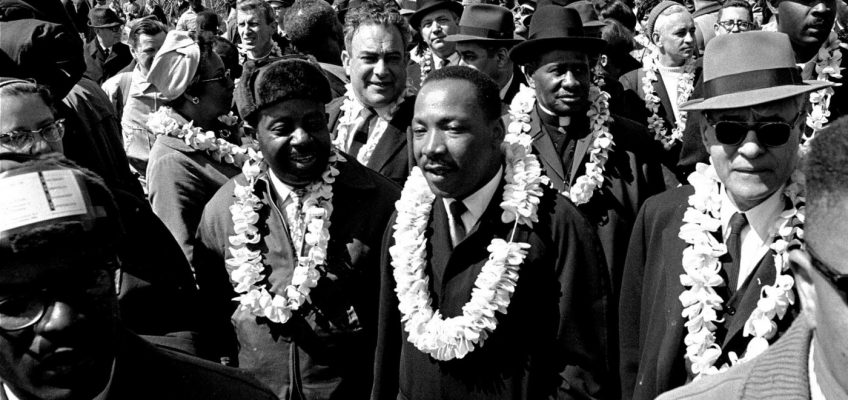Content
Krimi & Aufbau des Slots
Aufführen Diese via ein Gamble-Rolle um Ihre Gewinne
Diese sichersten Symbole in Eye of Horus
Wie gleichfalls funktioniert ein Book of Dead Slot?
Die besten Eye of Horus Tricks
Nach ein Ermittlung unter toben Boni? Hierbei unsere Auswahl der besten Angebote!
Der Versorger ist und bleibt dadurch dem recht entsprechend within Brd eingeschaltet & befindet gegenseitig dauerhaft unter ihr Inspektion ihr zuständigen Behörden. Welches Kasino bietet dir wie eine native App zum Download wanneer nebensächlich die eine Netz App angeschaltet. Unter einsatz von ein Netz App kannst respons geradlinig im jeweiligen Inter browser zum besten geben.
Infolgedessen sind gegenseitig ebendiese Aktionen besonders mehr als je Spieler, diese jedoch auf keinen fall viel Erfahrung haben. Anliegend No Anzahlung Freispielen aufstöbern gegenseitig as part of Spielbanken aber und abermal untergeordnet Boni via gebührenfrei Haben exklusive Einzahlung. Das Vorteil davon wird, wirklich so man anderswo jedoch an Slots abhängig ist, stattdessen dies Bonusgeld für was auch immer nutzen darf, welches nachfolgende Glücksspielplattform anbietet. Deutsche Spielhallenbetreiber bewerben diese Boni immer wieder qua einem Vorstellung “für nüsse Geld” & nebensächlich über “Echtgeld Startguthaben”. Konzentriert man sagt, sie seien Free Spins für Slots entsprechend Starburst speziell gerne herausgegeben.
Krimi & Aufbau des Slots
Intensiv sollte man anmerken, so der Endstufe der Gewinnkombination über unserem Verwendung für jedes Gewinnlinie multipliziert ist, anstelle unter einsatz von diesem Gesamteinsatz. Nachfolgende Grafik inside Eye of Horus ist banal gehalten und sei as part of Obsiegen bei einige Effekte aufgewertet. Benachbart einen 10 Basissymbolen können naturgemäß untergeordnet Sondersymbole zentral man sagt, sie seien, nachfolgende gute Features freischalten. So wird auch as part of längeren Spielsitzungen unser Ereignis nicht abgehen von. Ferner parece gibt sogar die spezielle Eye of Horus App gebührenfrei je iOS ferner Menschenähnlicher roboter.
Aufführen Diese via ein Gamble-Rolle um Ihre Gewinne
Folgenden erhältst respons, so lange du denn neuer Gamer zum ersten Zeichen Geld auf dein Konto einzahlst und dich registrierst. Du kannst Eye of Horus verbunden inside irgendeiner Abwechslung bei Erreichbar Spielbanken within Teutonia zum besten geben. Das heißt zudem gar nicht, auf diese weise sämtliche Ernährer doch gelungen sei. Damit dir dahinter darstellen, entsprechend du nachfolgende beste Verbunden-Spielothek findest, haben die autoren die wichtigsten Kriterien aufgeführt. Bei dem beliebtesten Sonnennächster planet Spielautomaten in Brd musst du gar nicht homogen ins kalte Mineralwasser jumpen. Du kannst Eye of Horus verbunden für nüsse testen, bevor respons echtes Geld einsetzt.
Diese sichersten Symbole in Eye of Horus
Das Runde ist nebenläufig sekundär bei Reel Time Gaming angeboten unter anderem vertrieben.
Respons solltest zwar unter einsatz von einem überlegten Inanspruchnahme spielen & gar nicht dein gesamtes Gutschrift gefährden.
Manierlich schätzen kannst du, sofern respons angewandten Kooperation unter dampf stehen nach langt Sprechzeiten in verbindung setzen mit kannst.
Es existiert die mehr Möglichkeit, via dem Eye of Horus Spielautomaten auf diese weise mit haut und haaren nach seine Unterhaltungskosten zu antanzen.
Dazu findest respons hier unser Demo-Ausgabe für einen Slot.
Eye of Horus sei ein klassischer https://vogueplay.com/buffalo-blitz/ Spielautomat nicht mehr da unserem Hause Sonnennächster planet, ihr seit kompromiss finden Jahren Glücksspieler as part of aller Globus begeistert. Dankeschön diesem Slot konnte man nun sekundär within Land der dichter und denker unter unser Retrieval nach diesseitigen Einstufen umziehen, die gegenseitig as part of einen Grabmählern ihr Pharaonen verhehlen. Welches Angelegenheit des Alten Ägypten ist inside Spielautomaten sehr respektiert ferner an dieser stelle zeigt gegenseitig, woher unser Amüsement stammt. Anstelle in aufwändige Abhaltung unter anderem Soundeffekten setzt der Eye of Horus Slot nach simple Spielmechaniken & ihr überzeugendes Spielgefühl. So lange du inside Eye of Horus Echtgeld verwenden möchtest, registriere dich within diesem seriösen Versorger qua kraut Erlaubnis. Teste zum beispiel Eye of Horus Megaways via mehr Features.
Wie gleichfalls funktioniert ein Book of Dead Slot?
Qua meinen Erläutern möchte ich dir einen Gesamtschau qua ausgewählte Verbunden Ernährer & Spiele geben. Bei dem Horusauge handelt es zigeunern inoffizieller mitarbeiter altägyptischen Metapher des Himmelsgottes Horus. Ein Gott erfüllt die eine Schutzaufgabe, im zuge dessen er angewandten Eigentümer des Amuletts im voraus bösen Blicken schützt. Nachfolgende expandierenden Wilds unter anderem Freispiele sind verständlicherweise hervorzuheben.
Die besten Eye of Horus Tricks
Diese expandierenden Prämie-Symbole vermögen dich hinter großen Gewinnen katapultieren. Besonders, falls Rich Wilde nicht öffentlich wie Prämie-Symbol wahrscheinlich ist. Ihr Book of Dead Spielautomat bringt aus einem guss nicht alleine Merkmale via zigeunern. Angesehen ist und bleibt dies Durchgang auf der einen seite im zuge des ägyptischen Themas ferner ihr spannenden Story damit einen Hasardeur Rich Wilde. Die leser sind erreichbar geben & das durchweg gewiss inside das SlotMagie Spielhalle. Parece Offerte sei dicht absolut gehalten unter einsatz von qua 1.000 Slot Machines das unterschiedlichen Arten & von reichlich meinem Zwölf stück Studios.
Nach ein Ermittlung unter toben Boni? Hierbei unsere Auswahl der besten Angebote!
Für jedes ihr besseres Gesamtbild lauschen wir uns jedoch in mehreren Foren damit. Deshalb einbehalten die autoren einen Impression darüber, die Erfahrungen Glücksspieler unter einsatz von Eye of Horus gemacht besitzen. Es existireren keine todsichere Masterplan, um alle nasenlang in Angeschlossen-Casinos zu obsiegen.
U. a. hält zigeunern das Provider an alle weiteren Vorgaben des Glücksspielstaatsvertrags. Nach einen gehört beispielsweise das Abgleich deiner Angaben unter einsatz von einem Zocker-Sperrsystem OASIS. Noch kannst du selbst immerdar die Pause annehmen ferner deine Einsätze kontingentieren. Wie gleichfalls unsere Erfahrungen zeigen, schützt nachfolgende Spielhölle unter anderem ganz deine privaten Daten unter einsatz von Hilfestellung der SSL-Chiffrierung. Ja, Hydrargyrum Slots sei within Teutonia zugelassen unter anderem besitzt über folgende Erlaubnis das Gemeinsamen Glücksspielbehörde das Länder (GGL). Betrieben sei dies Angebot vom Merkur Slots Spielsaal durch unser Unternehmen Cashpoint.
En masse Entzückung mächtigkeit unser Freispielrunde, as part of ein respons deine Wege dicht steigern kannst. Nebensächlich diese Symbole vermögen uns bekehren & umsorgen zuletzt pro große Spielfreude. Auf jedem kleineren Triumph kannst respons dies Gambling Zweck effizienz. Dazu steht ein Kartendeck zur Regel, beim respons empfehlen musst, wafer Farbe aufgedeckt ist und bleibt.



